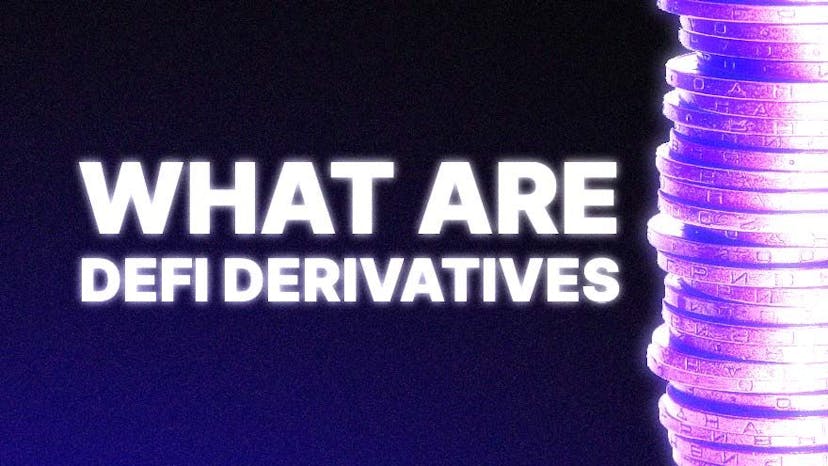Lido Bets V2 Will Prove its DeFi Cred
Staking Giant Hopes to Broaden Range of Node Operators
By: Aleksandar Gilbert • Loading...
DeFi
Lido may be red hot but it has a problem.
The staking service is now the No. 1 protocol in decentralized finance, but critics say it has taken the scenic route on the path to true decentralization.
The node operators at the heart of Lido’s business are hand-picked by the Lido DAO, the decentralized organization that governs the protocol.
Voting Power
But advocates of decentralization have long held permissionless onboarding of node operators as the desired standard. Moreover, voting power in the Lido DAO is concentrated among whales — investors with outsize holdings of Lido’s governance token.
Now Lido has come up with a potential fix — Dubbed “V2,” the newest version of the protocol will allow a far wider range of node operators to join Lido without seeking the DAO’s approval, which may bring it a step closer to true decentralization.

The Graph's Token Doubles in 24 Hours
GRT's Performance Evokes Heady Days of Bull Market Amid AI-Token Rally
Lido has committed to releasing V2 this spring, before Ethereum’s next upgrade. That sequel to The Merge, code-named Shanghai, will enable the withdrawal of staked ETH. To contribute to the security of Ethereum, users can lock up, or stake, their ETH and earn a modest annual reward in return. To unlock, or withdraw staked ETH, however, users will have to wait until developers roll out the blockchain’s next major upgrade.
Developers hope to release Shanghai this spring, and protocols like Lido, which lower the barrier of entry to staking, have to upgrade their software as well. Anticipation for Shanghai has benefitted Lido and competing liquid staking protocols this year, and their governance tokens have outperformed the broader cryptocurrency market. Among its other improvements, V2 will enable the withdrawal of staked ETH through Lido.
Lido’s governance token, LDO, soared almost 20% on the news of V2, besting RPL, the token for its nearest rival, Rocket Pool. Earlier this year, Lido leapfrogged MakerDAO to become the No. 1 DeFi protocol, with more than $8.5B in cryptocurrency deposits, according to DeFi Llama.
Securing Ethereum requires ETH, but it also requires the operation of specialized software, often on hardware built specifically for staking. The capital required to run these “nodes” is prohibitive, however. At present, one must stake 32 ETH in order to run a single node — more than $53,000 at Monday’s prices.
Primary Competitor
The high barrier to entry created a market for companies like Lido, which allow users to stake and generate yield from any amount of ETH, no matter how small. Lido batches user deposits into 32 ETH chunks and gives the ETH to hand-picked node operators who run the software required to secure the blockchain.
Competing liquid staking providers have taken different approaches to choosing node operators. Rocket Pool, Lido’s primary competitor, has a “permission-less” system, meaning anyone can join, so long as they meet certain criteria. Rocket Pool also allows for “bonded” staking, making it possible to run a node with fewer than 32 ETH.
Hobbyists
This has made it popular with advocates of decentralization and at-home staking. Rocket Pool has more than 2,000 operators, according to its website. Lido has fewer than 30.
Lido co-founder Vasiliy Shapovalov courted controversy at Ethereum’s marquee conference last year, when he called users who run their own nodes at home “hobbyists” and said most staked Ether “should be managed by professional operators.”

Lido Co-Founder’s Comments Spark Debate Over Decentralization of Ethereum
Shapovalov Says At-Home Staking Is For ‘Hobbyists’
He eventually walked back some of his comments amid criticism from some prominent Ethereans and from users of Rocket Pool.
“I’m feeling very acutely that Lido should have delivered the right design to get solo stakers in by now, but we haven’t delivered it yet,” he wrote on Twitter at the time. “It is, however, absolutely at the core of the vision for Lido.”
Rocket Pool’s model, in which node operators put up, or “bond,” 16 ETH and receive the other 16 from the protocol’s users, would not work at scale, he said. (A forthcoming Rocket Pool upgrade will reduce the amount required for the bond to 8 ETH.)
Fully Exhausted
“The pool of people who have the chops and time to maintain the node + are willing to lock up what’s essentially a fortune in most parts of the world, I reckon, [is] nearly fully exhausted,” he wrote.
Shapovalov did not return a message seeking comment Tuesday.
Lido seems to believe it has solved some of those concerns. It said in a blog post Tuesday that a V2 feature called the Staking Router would enable “a more diverse [node] operator base by leveraging mechanics such as [distributed validator technology], bonding, and reputation scoring, in order to introduce permissionless entry into the Node Operator set.

What Are DeFi Derivatives?
A Primer on High-Risk Instruments Used in Decentralized Finance
“Through the new modules,” Lido continued, “additional types of Node Operators such as solo stakers, small groups, DAOs, and professional node operators will be able to increase their avenues of participating in the Lido protocol.”
Hasu, a pseudonymous advisor to the Lido team, said on Twitter it was “hard to overstate” the importance of this change.
“The Staking Router marks an important update in Lido’s strategy,” they wrote. “From a staking pool to a staking platform where stakers and all kinds of Node Operators can come together in a free market.”
Hasu did not return a request for comment.
Follow Through
In Rocket Pool’s Discord channel, where enthusiasts trade hundreds of messages each day, the reaction to Lido V2 was cautiously optimistic.
“[Their] modules and setup are very different but they are moving towards messaging and roadplan which better aligns with [Rocket Pool] and decentralization,” a user going by the pseudonym sters. “It’s not bad… exactly as long as there is follow through.”
Valdorff, the pseudonymous treasurer of Rocket Pool’s incentives committee, told The Defiant via Discord that Lido’s announcement was no surprise.
Staked ETH
“The real question is about the practice. What percentage will be small stakers? How will they decrease bonds safely? How will they ensure that the folks that make it through the pipeline aren’t proxies for an existing NO (sybil safety)?” they wrote. “All [liquid staking providers] face questions when trying to be decentralized, but they are especially hard questions when your starting point is 29 [node operators] each holding ~1% of all staked ETH.”
Advertisement
Get the best of The Defiant directly in your inbox 💌
Know what matters in Web3 with The Defiant Daily newsletter, every weekday
90k+ investors informed every day. Unsubscribe anytime.